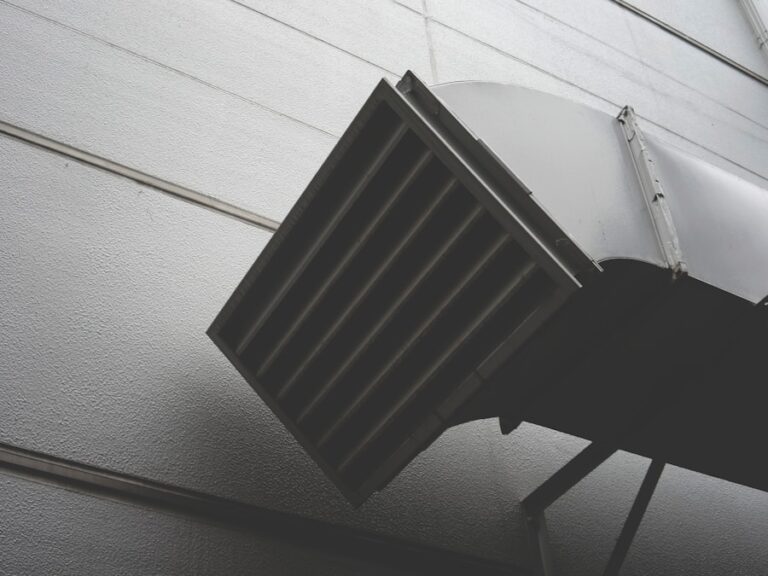Regular maintenance of heating, ventilation, and air conditioning (HVAC) systems is crucial for ensuring optimal performance and longevity. Just as a car requires routine oil changes and inspections to function efficiently, HVAC systems also benefit significantly from consistent upkeep. Neglecting these essential maintenance tasks can lead to a host of problems, including decreased energy efficiency, higher utility bills, and even complete system failures.
By prioritizing regular maintenance, homeowners can not only extend the lifespan of their HVAC systems but also enhance indoor air quality and comfort. Moreover, regular maintenance can prevent minor issues from escalating into major repairs. For instance, a small refrigerant leak can lead to significant damage if left unaddressed, resulting in costly repairs or even the need for a complete system replacement.
By scheduling routine check-ups, homeowners can catch these issues early on, saving both time and money in the long run. Additionally, many manufacturers require proof of regular maintenance to uphold warranties, making it even more critical for homeowners to stay on top of their HVAC care.
Key Takeaways
- Regular maintenance is crucial for the efficient functioning of HVAC systems and to prevent costly repairs.
- Changing air filters regularly is essential to maintain good indoor air quality and prevent strain on the system.
- Cleaning and clearing vents and ducts helps to improve airflow and prevent the buildup of dust and debris.
- Checking and sealing ductwork is important to prevent air leaks and ensure efficient heating and cooling.
- Regular inspections and tune-ups by professionals can help identify and address potential issues before they become major problems.
- Monitoring thermostat settings and managing humidity levels can help improve comfort and energy efficiency.
- Professional HVAC maintenance services can provide thorough and comprehensive care for your system, ensuring its longevity and optimal performance.
Changing Air Filters
Consequences of Neglect
This not only leads to increased energy consumption but can also cause undue strain on the system, potentially resulting in breakdowns. Homeowners should aim to check and replace their air filters at least every three months, although some may need more frequent changes depending on factors such as pet ownership or living in dusty environments.
Benefits of Clean Filters
A clean filter allows for better airflow and efficiency, which translates to lower energy bills and a more comfortable living space.
Improved Indoor Air Quality
Additionally, maintaining clean filters can significantly improve indoor air quality, reducing the risk of respiratory issues and allergies for occupants.
Cleaning and Clearing Vents and Ducts

In addition to changing air filters, cleaning and clearing vents and ducts is another essential aspect of HVAC maintenance. Over time, dust, debris, and even mold can accumulate within ductwork, obstructing airflow and diminishing system efficiency. This buildup not only hampers the performance of the HVAC system but can also lead to health concerns for those living in the home.
Regularly cleaning vents and ducts helps ensure that the air circulating throughout the home is clean and free from contaminants. Homeowners can take proactive steps by inspecting their vents for visible dust or blockages and using a vacuum or brush to remove any debris. However, for a thorough cleaning of ductwork, it is often advisable to enlist the help of professionals who have specialized equipment designed for this purpose.
Professional duct cleaning services can effectively remove accumulated dust and allergens, improving overall air quality and system efficiency. By investing time in this maintenance task, homeowners can enjoy a healthier living environment while also prolonging the life of their HVAC systems.
Checking and Sealing Ductwork
| Metrics | Value |
|---|---|
| Number of Ductwork Inspections | 235 |
| Percentage of Ductwork Leaks Found | 18% |
| Number of Ductwork Sealed | 180 |
| Percentage of Energy Savings after Sealing | 25% |
Another critical component of HVAC maintenance involves checking and sealing ductwork. Leaky ducts can significantly reduce the efficiency of an HVAC system by allowing conditioned air to escape before it reaches its intended destination. This not only leads to higher energy bills but can also create uncomfortable temperature variations throughout the home.
Therefore, ensuring that ductwork is properly sealed is essential for maintaining optimal system performance. Homeowners should periodically inspect their ductwork for signs of leaks or damage, such as disconnected joints or visible gaps. Sealing these leaks with appropriate materials can help improve airflow and energy efficiency.
In some cases, it may be beneficial to hire professionals who specialize in duct sealing to ensure that the job is done correctly. By addressing ductwork issues promptly, homeowners can enhance their HVAC system’s efficiency while also creating a more comfortable living environment.
Regular Inspections and Tune-Ups
Scheduling regular inspections and tune-ups is another vital aspect of HVAC maintenance that should not be overlooked. These comprehensive evaluations allow trained technicians to assess the overall health of the system, identifying potential issues before they escalate into costly repairs. During a tune-up, technicians typically check various components of the HVAC system, including electrical connections, refrigerant levels, and mechanical parts.
Regular inspections not only help maintain system efficiency but also ensure that safety protocols are being followed. For instance, technicians can identify potential hazards such as gas leaks or electrical issues that could pose risks to occupants. By investing in routine inspections and tune-ups, homeowners can enjoy peace of mind knowing that their HVAC systems are operating safely and efficiently.
Monitoring Thermostat Settings

Optimizing Energy Use and Comfort
A programmable or smart thermostat allows homeowners to set specific temperature schedules based on their daily routines, optimizing energy use while maintaining comfort. For instance, lowering the temperature at night or when no one is home can lead to substantial energy savings.
Ensuring Thermostat Accuracy and Efficiency
Additionally, homeowners should regularly check their thermostat for accuracy and functionality. A malfunctioning thermostat can lead to inconsistent temperatures and increased energy costs as the HVAC system struggles to maintain desired settings.
Enhancing Comfort and Energy Efficiency
By ensuring that the thermostat is functioning correctly and utilizing programmable features effectively, homeowners can enhance both comfort and energy efficiency in their living spaces.
Managing Humidity Levels
Managing humidity levels within a home is another critical aspect of maintaining an efficient HVAC system. High humidity can make indoor spaces feel uncomfortable and may lead to mold growth or other moisture-related issues. Conversely, low humidity levels can cause dry skin and respiratory problems.
An effective HVAC system should be able to regulate humidity levels to create a comfortable living environment. Homeowners can take steps to manage humidity by using dehumidifiers or humidifiers as needed. Additionally, ensuring proper ventilation in areas prone to moisture buildup, such as bathrooms and kitchens, is essential for maintaining balanced humidity levels.
Regularly checking and maintaining these systems will help prevent humidity-related problems while also enhancing overall comfort within the home.
Professional HVAC Maintenance Services
While many maintenance tasks can be performed by homeowners themselves, enlisting professional HVAC maintenance services is often the best approach for comprehensive care. Trained technicians possess the expertise and specialized tools necessary to conduct thorough inspections and repairs that may be beyond the capabilities of an average homeowner. These professionals are well-versed in industry standards and best practices, ensuring that all aspects of the HVAC system are addressed effectively.
Investing in professional maintenance services not only enhances system performance but also provides peace of mind for homeowners. Knowing that trained experts are handling their HVAC systems allows homeowners to focus on other aspects of their lives without worrying about potential issues arising from neglect or improper care. Ultimately, regular professional maintenance is an investment in both comfort and efficiency that pays dividends over time through reduced energy costs and extended system lifespan.
In conclusion, regular maintenance of HVAC systems is essential for ensuring optimal performance, energy efficiency, and indoor air quality. From changing air filters to managing humidity levels and seeking professional services when necessary, homeowners play a crucial role in maintaining their systems’ health. By prioritizing these tasks, they can enjoy a comfortable living environment while minimizing repair costs and extending the lifespan of their HVAC systems.
If you’re looking to improve the energy efficiency of your home, one important aspect to consider is your windows. The article “The Best Window Replacement Options for Energy Efficiency” provides valuable insights into choosing the right windows to help lower your energy bills and reduce your carbon footprint. Properly sealed windows can also have a significant impact on the effectiveness of your HVAC system, making it easier to maintain a comfortable temperature in your home. Regular HVAC maintenance, as outlined in other articles, can further enhance the efficiency of your heating and cooling system.
FAQs
What is HVAC maintenance?
HVAC maintenance refers to the regular upkeep and servicing of heating, ventilation, and air conditioning systems to ensure they operate efficiently and effectively.
Why is HVAC maintenance important?
Regular HVAC maintenance is important to ensure that the system operates at peak efficiency, reduces energy costs, extends the lifespan of the equipment, and maintains good indoor air quality.
What are some HVAC maintenance tips?
Some HVAC maintenance tips include regularly changing air filters, cleaning the coils, checking and sealing ductwork, lubricating moving parts, and scheduling professional inspections and tune-ups.
How often should HVAC maintenance be performed?
HVAC maintenance should be performed at least once a year, ideally before the start of the heating and cooling seasons. Some tasks, such as changing air filters, may need to be done more frequently.
What are the benefits of regular HVAC maintenance?
The benefits of regular HVAC maintenance include improved energy efficiency, lower utility bills, fewer breakdowns, extended equipment lifespan, improved indoor air quality, and enhanced comfort.






